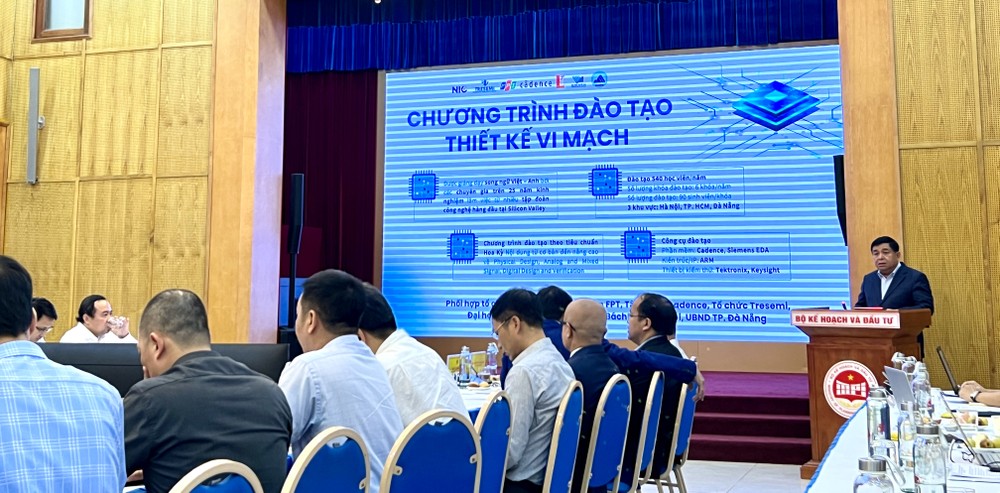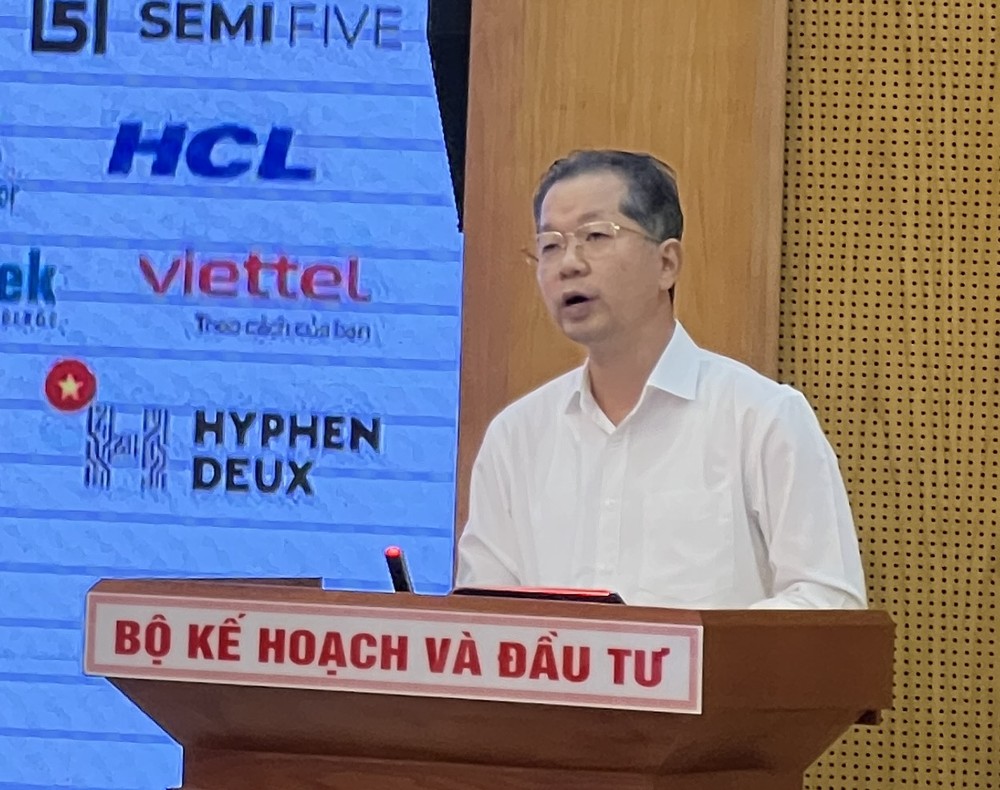
Participants voiced their opinions at a seminar themed ‘Leveraging the Role of Vietnamese Enterprises in Developing Human Resources for the Semiconductor Industry’ held at the headquarters of the Ministry of Planning and Investment under the presidency of Minister Nguyen Chi Dung.
During the event, Minister Nguyen Chi Dung emphasized that this practical and meaningful initiative aims to proactively implement the human resource development plan for the semiconductor industry until 2030, with a vision toward 2050. The efforts in training semiconductor human resources, initiated by the Ministry have received strong support from localities, businesses, and universities which have been implementing the training of semiconductor human resources.
The Minister highly appreciated the collaboration and support from various ministries, sectors, and localities, expressed confidence that the goal of training 50,000 engineers and graduates for the semiconductor industry, including 15,000 personnel for the design phase, will be achieved soon. This effort aims to meet the demand for semiconductor human resources both domestically and internationally by 2030.
Secretary of the Da Nang City Party Committee Nguyen Van Quang affirmed the determination to create a favorable environment for businesses to participate in developing human resources for the semiconductor industry. He also expected more specific information, solutions, and practical cooperation opportunities to enhance training and develop human resources in the semiconductor and artificial intelligence fields in Da Nang City.
Based on their practical experience, the Da Nang Secretary proposed three specific recommendations to the Ministry of Planning and Investment.
Firstly, he urged to formulate a strategy for developing human resources in the semiconductor industry. Secondly, he hoped the government to develop investment plans for national semiconductor industry service centers in big cities such as Hanoi, Ho Chi Minh City, and Da Nang to provide timely support for semiconductor businesses investing in Vietnam. Thirdly, he proposed a mechanism to establish investment funds and national-level funds to support the development of microchips and semiconductor human resources, attracting international corporations to contribute to Vietnam’s semiconductor ecosystem.
Minister Nguyen Chi Dung disclosed that in August, the government will introduce important policies to develop the semiconductor industry, including issues raised by the Secretary of the Da Nang City Party Committee.
The Ministry of Planning and Investment has been actively advising and proposing strategies for the development of the semiconductor workforce by 2030 with a vision to 2050 to submit to the Prime Minister.

According to Director of the Viet Nam National University Ho Chi Minh City (VNU-HCM) Vu Hai Quan, the involvement of state agencies and businesses in training programs is crucial as collaboration enhances training quality and prepares graduates to meet market demands. Current collaboration models between the National Innovation Center (NIC), universities, and companies need to be expanded.
On behalf of enterprises, FPT Chairman Truong Gia Binh highly appreciated the role of building training programs that align with the actual needs of the semiconductor industry to realize the goal of training semiconductor human resources.
























